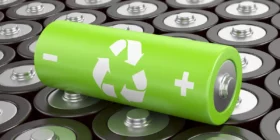A growing list of airlines are banning or tightening rules on passengers carrying or using certain lithium-ion batteries onboard their flights.
Airlines around the globe are following South Korea’s lead and banning batteries over 160Wh or the charging of lithium-ion power banks in the cabin of their planes.
Earlier this month, BEST reported how South Korean airlines had banned power banks and e-cigarettes from being stored in overhead bins – and that power banks had to be kept in protective pouches or transparent plastic bags, or the connectors covered with insulating tape.
The South Korean ban followed a fire on an Air Busan plane in January. A power bank is believed to be the cause, although a final report has not yet been published by investigators.
The International Air Transport Association’s (IATA) Dangerous Goods Regulations regards power banks as lithium batteries.
Restricting on-board batteries
Singapore Airlines and its budget off-shoot Scoot have announced that from 1 April passengers must not charge portable power banks via the onboard USB ports, or use power banks to charge their personal devices.during flights.
In a Facebook post on 12 March, Singapore Airlines stated: ‘Power banks must be carried in cabin baggage on all SIA flights and are not permitted in checked baggage. Customers may bring power banks with a capacity of up to 100Wh without special approval, while those between 100Wh and 160Wh require airline approval.’
A further 10 other Airlines have since announced restrictions or bans on batteries being carried in the cabin of their planes. The individual airlines rules are:
Air Astana
From 13 March power banks and lithium-ion batteries must be kept in carry-on luggage and charging them is banned during flights. Passengers can carry batteries up to 100Wh without prior consent. Batteries between 100Wh to 160Wh can be carried onboard with prior approval, while those bigger than 160Wh are banned from the cabin.
Qantas Airways
Since February, power banks must be stored in carry-on hand luggage and there’s a 100Wh limit on non pre-approved batteries. Charging power banks onboard and batteries without the correct certification are banned. Batteries bigger than 160Wh are banned from the cabin.
Emirates
From March, power banks must be stored in carry-on hand luggage and batteries over 100Wh must be pre-approved. Charging power banks onboard is banned. Passengers are only allowed two batteries for personal use.
Lufthansa
From April, power banks must be stored in carry-on hand luggage and batteries over 100Wh require airline approval — this includes power banks. Batteries bigger than 160Wh are banned from the cabin.
British Airlines
From May, power banks must be stored in carry-on hand luggage and batteries between 100-160Wh require prior airline approval. Batteries bigger than 160Wh are banned from the cabin.
Delta Airlines
From June, power banks must be stored in carry-on hand luggage. Charging power banks onboard in banned. Passengers will need prior permission to carry batteries between 100-300Wh while batteries bigger than 300Wh are banned from the cabin.
Cathy Pacific
From July, power banks must be stored in carry-on hand luggage. Devices with batteries bigger than 100Wh will need prior permission to be carried onboard. Lithium-ion batteries bigger than 100Wh are banned from checked luggage.
Air New Zealand
From August, power banks must be stored in carry-on hand luggage and batteries between100 to 160Wh require prior permission from the airline. Batteries over 160Wh are banned, as is the onboard charging of power banks.
China Airlines
From 1 March, all passengers departing from Incheon Airport must either cover the ports of their power banks with insulating tape or protective covers, or place them in transparent zip-lock bags or protective pouches. All power banks must be carried by the passenger or placed in the seat pocket in front.
Thai Airways
From 15 March, passengers are banned from using or charging power banks and portable batteries during flights.












